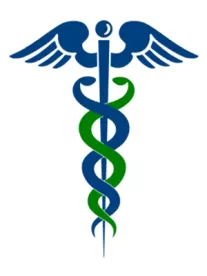Summary
In St. Francis Medical Center v. Azar, 277 hospitals challenged Medicare payment decisions over the past two decades. This recent DC Circuit Court remand may open the door to hospitals receiving additional reimbursement from Medicare because of alleged faulty cost-reporting data utilized to determine prospective payments.
In Depth
A recent DC Circuit Court remand may open the door to hospitals receiving additional reimbursement from Medicare because of allegedly faulty cost-reporting data utilized to determine prospective payments.
In St. Francis Medical Center v. Azar, 277 hospitals challenged Medicare payment decisions arguing that prospective payment rates were based on errors embedded in 1981 cost-reporting data used to calculate the standardized amounts in 1983. Medicare certified hospitals must annually submit a cost report containing provider-specific data and information, which is then used for certain annual adjustments for prospective payment rate setting and provider specific annual payment adjustments. The particular issue with the data challenged in this case emanates from how CMS characterized patient transfers from one hospital to a separate facility. The cost-reporting data classified such patient transfers as a patient discharge, and thereby potentially overstated the number of discharges and understated the allowable operating costs per discharge. Thus, the appealing hospitals argue that the understated allowable operating costs per discharge understated the hospitals’ “standardized payment amounts,” which are used by the Department of Health and Human Services (HHS) as the basis for prospective payment rates to hospitals. Because the substantive issue in St. Francis relates to the transfer adjustment calculation for “standardized payment amounts,” which are used to determine Medicare inpatient service payments for all participating hospitals, the District Court decision could have implications for many, if not the majority of hospitals paid under Medicare’s Inpatient Prospective Payment System.
The Provider Reimbursement Review Board and a federal District Court dismissed the hospitals’ payment challenge, concluding that the hospitals were barred from bringing the challenge for lack of jurisdiction pursuant to the amended reopening rules. The regulations pertinently state that a request to reopen a determination of the Secretary, a contractor, or a decision by a reviewing entity must be received no later than three years after the date of the determination or decision that is the subject of the requested reopening. See 42 C.F.R. §405.1885(a)(6).
On appeal, however, the DC Circuit Court of Appeals reversed the District Court’s summary judgment stating authoritatively that “[t]he reopening regulation applies only to reconsideration by the entity that made the decision at issue. It does not apply to administrative appeals.” The DC Circuit remanded the case for further proceedings at the District Court in light of their ruling.
In reversing the District Court’s summary judgment, the DC Circuit allows the appellants to pursue the merits of their challenge related to potentially faulty cost-reporting data. HHS to date has been relying on the argument that the reopening rules barred the challenge. It is unclear how the Secretary will address the merits of the appellant hospitals’ arguments or if the Secretary will request an en banc review of the DC Circuit’s decision on the jurisdictional issue.
If the ruling on jurisdiction stands, and the case is remanded to the District Court for resolution of the substantive issue, and the appellants are successful on the merits of their claims, the dollar amounts for owed to them could be quite substantial given that the hospitals are challenging payment decisions over the past two decades.
A decision by the District Court in the favor of the hospitals also could affect the broader hospital community. Indeed, it is possible that hospitals across the country may benefit. If the Centers for Medicare and Medicaid Services loses on the merits, the agency could be required to make a prospective adjustment to correct for historic errors in the calculation of the standardized amount, just as CMS did following Cape Cod Hospital et al. v. Sebelius, where the DC Circuit found that CMS had improperly calculated certain budget neutrality adjustments, and the agency prospectively increased the operating rate paid to all hospitals through a one-time adjustment of 1.1 percent for purposes of determining fiscal year 2012 IPPS rates. However, it is likely that only hospitals with pending appeals would benefit from a favorable decision ordering Medicare to repay hospitals for historic payment errors. Hospitals that have not yet evaluated this issue, but that wish to appeal to preserve recovery opportunities may still be able to appeal some cost reports.




 />i
/>i

